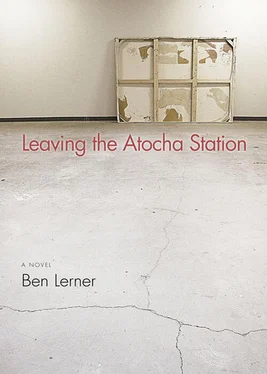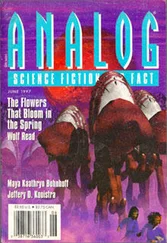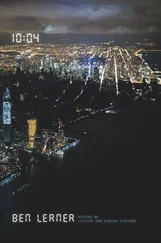I took one of the longer showers of my project. I could not represent to myself the day I had passed; it was contentless and repetitious and thus formless; now, in the steam, it was fading. The exchange with Teresa had transpired with disorienting speed. I barely dried myself and lay down and smoked and was grateful to be too tired to ruminate for long. I thought of Levin sweating out his alienation in the fields. I thought of Picasso producing masterpieces in his sleep.
__________________________
In post — March 11 Madrid, there was a flurry of activity at the foundation; there were several panels with minor politicians and major professors and local journalists and one or two fellows about the bombings and their political effects. I never attended, but I skimmed the e — mails. When I got back from Barcelona, there was a message from one of María José’s assistants inviting me to join a panel about “literature now,” a panel that would involve another fellow and a few local writers and literary critics; I didn’t respond. I was still trying to formulate a way to excuse myself from the panel when, a few days after the first message, I received an e — mail from María José thanking me for agreeing to participate. The panel would be held in the foundation’s auditorium on such and such evening; she looked forward to seeing me.
My terror at the prospect of the panel dovetailed with my increasing anxiety regarding what I would do when I completed my research; there were only two months of the fellowship left. I was not a sufficiently published writer to apply for jobs teaching what was called “creative writing”; Cyrus was threatening to move into his parents’ basement in Topeka if things weren’t repaired with Jane; whatever appeal Brooklyn held was diminished by the work I’d have to do in order to subsist there; I was determined never to set foot in Providence again. I had intended to apply to PhD programs in literature, but I knew people who’d intended to do that for years; I’d never gotten beyond bookmarking a few university home pages. The idea of law school occurred to me repeatedly, involuntarily, often with a shudder. In order not to worry about the particulars of what I would do upon my return, I framed my decision as a choice between staying and going, as if that decision had to precede, was independent of, where in particular I would go and what, in either event, I would actually do. In the final phase of my research, as the days continued to lengthen and warm, I evaluated every meal, conversation, and walk in terms of whether or not it justified or invalidated staying on. I was at once more distant and more proximal to my own experience than ever before; on the one hand, my attention was redoubled: every bite of food or phrase of overheard conversation or slant of light or corner of the museum was information for me to mull as I made my decision; on the other hand, whatever the object of my intensified attention, it was immediately abstracted into my ruminations about the future.
Arturo had said in Rafa’s presence that if I stayed in Spain I could have a room at Rafa’s house for as long as I liked, and Rafa had nodded his assent; the prospect of being a writer in residence in a modern palace frequented by the beautiful was not without its allure, however exhausting it would be for my face. Or, with my Ivy League degree, I could certainly find a job teaching English for corporations or rich kids; most Americans in Madrid made a living thus; they paid you under the table in cash so you didn’t need a visa, and being in Spain illegally for a white American was no problem whatsoever. I didn’t need to worry about health insurance, it might also have occurred to me, especially with the Socialists in power. The people I loved could come and visit. But in certain moments, I was convinced I should go home, no matter the mansion, that this life wasn’t real, wasn’t my own, that nearly a year of being a tourist, which is what I indubitably was, was enough, and that I needed to return to the U.S., be present for my family, and begin an earnest search for a mate, career, etc. Prolonging my stay was postponing the inevitable; I would never live away from my family and language permanently, even if I could work out the logistics, and since I knew that to be the case, I should depart at the conclusion of my fellowship, quit smoking, and renew contact with the reality of my life; that would be best for me and my poetry.
In other moments, however, the discourse of the real would seem to fall on the side of Spain; this, I would say to myself, referring to the hemic taste of chorizo or the aromatic spliff or both of those things on Teresa’s breath, this is experience, not because things in Iberia were inherently more immediate, but because the landscape and my relation to it had not been entirely standardized. There would of course come a point when I would be familiar enough with the language and terrain that it would lose its unfamiliar aspect, a point at which I would no longer see a stone in Spain and think of it as, in some essential sense, stonier than the sedimentary rocks of Kansas, and what applied to stones applied to bodies, light, weather, whatever. But that moment of familiarization had not yet arrived; why not stay until it was imminent? Maybe if I remained I would pursue the project described so many months ago in my application, composing a long and research-driven poem, whatever that might mean, about the literary response to the Civil War, exploring what such a moment could teach us about “literature now.” My Spanish would rapidly improve; I would not read Ashbery or Garnett or anything else in English, but hurl myself headlong at the Spanish canon; I would become the poet I pretended to be and realize my project. I would buy a phone and consummate my relationship with Teresa.
I was amazed to find myself protective of my poetry, comparing my options’ conduciveness to writing as though obliged to do so by my genius, a genius I knew I didn’t have; no duende here, I would think to myself, checking my body for sensation, no deep song. But my research had taught me that the tissue of contradictions that was my personality was itself, at best, a poem, where “poem” is understood as referring to a failure of language to be equal to the possibilities it figures; only then could my fraudulence be a project and not merely a pathology; only then could my distance from myself be redescribed as critical, aesthetic, as opposed to a side effect of what experts might call my substance problem, felicitous phrase, the origins of which lay not in my desire to evade reality, but in my desire to have a chemical excuse for reality’s unavailability. But wasn’t my relationship with substance also fake? I never injected anything; if I started pissing blood, I’d go to a doctor, not a bar; I planned to quit everything except social drinking, the appropriate dosage of my pills, and an occasional, whimsical smoke; I was destined to reproduce the bourgeois family, no matter how much I dreaded the prospect or wanted it postponed. Or was that the lie, the claim that my excessive self-medication was simulated; was the lie that I was in fact bound for health and respectability and so should enjoy getting fucked up while I could; had I stepped into the identity I projected, the identity of an addict; had the effort to prolong my adolescent experimentation indefinitely shaded imperceptibly into fearsome if mundane dependence, had mythomania become methomania? I less thought than felt these things on my skin as I wandered the city.
I was surprised one afternoon when I returned from El Retiro to see mail sticking out of the mailbox I almost never checked; it was a flyer for the panel. My nervousness was compounded by how serious it looked, including photos of the foundation’s guests: Javier Torres, a novelist and book critic for El País, whose headshot made him look like a presidential candidate; Elena López Portillo, professor of literature at UCM, who looked distinguished, gray headed in front of her bookcases; Teresa Solano, translator, poet, visual artist, and curator, who was pictured squinting and smoking and engaged in conversation; and Francesc Balda, a thirty-something Catalan novelist and political journalist, handsome, also smoking, facing the camera, shaved head. Two fellows working in relevant fields would join the panel, the flyer said. I stood there looking at Teresa’s picture for a long time, letting it sink in. I had not mentioned the panel to her because I was afraid she would insist on attending, but that didn’t explain why she hadn’t mentioned it to me; I saw her almost every day. I felt her inclusion was an act of aggression, an attack on me from María José, who wanted to humiliate me in front of Teresa; Teresa wanted to humiliate me in front of the foundation. I was furious and felt betrayed, but I was also disconcerted to discover, to be discovering so late, that Teresa had a reputation that could justify her presence in such company; according to the internet, Balda and Torres were famous, López Portillo was the world’s leading authority on several Spanish poets, and then there was Teresa; why hadn’t I ever Googled her before? She wasn’t famous, but she had a forthcoming book of poems, her translations from Catalan and French had appeared in the major periodicals, and she had won various prizes for emerging writers. Visual artist? I knew she had published translations, but I didn’t know about the forthcoming book; we had never exchanged a word about her poetry, and it somehow never occurred to me to be curious about her standing in the literary circles, whatever they were.
Читать дальше












